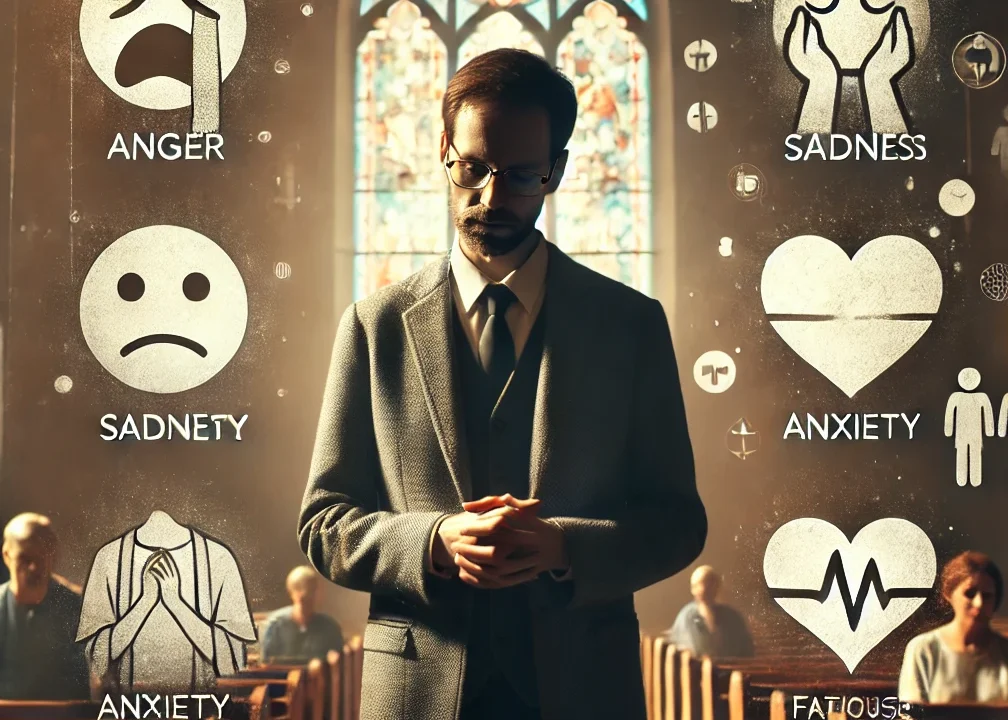The Talk Before the Talk: Healthy Conversations to Engage in Before Committing to Courtship
This article is based on scientific evidence and clinical experience, written by a licensed professional and fact-checked by experts.

Posted: January 27, 2022
Estimated reading time: 5 minutes
In This article
Meeting someone for the very first time can be both new and exciting, and a little scary at the same time. There may be the anticipation of having someone in your life that you can potentially spend the rest of your life with, while holding on to some apprehensions about the potential hurts and disappointments that might accompany allowing someone into your more intimate space. “Over the lifespan, the need for connection with others shapes our neural architecture, our responses to stress, our everyday emotional lives, and the interpersonal dramas and dilemmas that are at the heart of those lives” (Johnson, Attachment Theory in Practice, 2019).
To decrease the anxieties and stressors that may accompany relationship, it can be quite helpful to recognize what you are looking for before diving right into a more serious commitment. Like building a home, relationships require a great foundation, a solid framework, and room for customization to make it uniquely yours. Knowing up front what your purpose in connecting looks like can create a more intentional momentum in the world of dating, courtship, and possibly even marriage. Consider these six areas to discuss to help provide you with a more solid foundation of healthy relationship with a purpose.
Relationship Expectations
Before you allow yourself to get invested in any relationship, it is very important to make sure that you and the person of interest are on the same page about your relationship. This includes mapping out the intentions, definitions, and direction of how you would like the relationship to operate and where you would like for it to go. Some questions you may ask might be: do you only want to engage in casual dating? Are you interested in more committed relationship? Are either of you seeking to find someone for marriage? Do you feel safe with this person emotionally and physically? Knowing what you want should be one of the priorities to qualify what moving forward in the relationship should look like so that you both know what you are actually saying “yes” to.
Also helpful to discuss are topics like emotional needs, timelines, or past experiences that may be relevant to the momentum of the existing relationship. For instance, if someone has experienced trauma or a bad break up prior to the existing relationship, it will be quite helpful to talk about these experiences with your significant other if you feel any unresolved issues might impact the health and growth of the current relationship. By clearly defining what is needed according to emotional need or experiences, both you and your partner can know exactly what to expect from each other, so you can both can have a better understanding of how to navigate within the relationship.
Personality Types in Relationships
Another conversation that can be helpful when determining how far the relationship should go is to find out what personality type you are connecting with. As Cloud and Townsend share in “Safe People: How to Find Relationships that Are Good for You” (1995) consider the three types of potential risky individuals to allow in your intimate safe space. First there is the “abandoner”, where the individual may engage in the relationship but are only comfortable with shallow connection void of true closeness and trust. Next comes the critic, where they seem to take on the role of being overly judgmental and offer no room for grace in relationship. “Critics are more concerned with confronting errors than they are with making connections” (Cloud and Townsend, 1995). The “irresponsible” are those who fail to include self-care and care for others into their space. They often neglect commitments and do not think about consequences of their actions. “Those who are securely attached are comfortable with closeness and their need for others” (Johnson, 2019). Having conversations about past relationships and how your significant other handles conflict and commitment can really decrease unnecessary stress, disappointment, and other negative feelings that might surface should the relationship not be compatible.
Boundaries
In addition to expectations and identifying personality types, keep in mind that good relationships need structure to survive. Having clear boundaries of what is needed, or not needed, in a relationship helps provide that structure. Boundaries are like property lines. “They tell us where we end, and where others begin” (Cloud and Townsend, Boundaries updated and expanded edition: When to Say Yes, How to Say No to Take Control of Your Life, 2017). Consider this as the framework of the relationship. Once you know how your relationship operates, couples can better contribute into the relationship more confidently. Setting proper boundaries allows each person in the relationship to know exactly what is needed or not needed to help maintain the health of the relationship. People with boundary problems usually have a distorted attitude about responsibility (Cloud and Townsend, 1995) and may find themselves experiencing “codependency, depression, difficulties with being alone, disorganization, and lack of direction” (Cloud and Townsend, 2017); just to name a few. Some examples of building a solid framework might include the need to include trust, support, communication, and certain (defined) levels of intimacy in the relationship.
Boundaries are also helpful because they are used to establish what is or is not allowed within the relationship. For example, one good boundary might be to determine what exclusivity might mean if the relationship gets to a level of commitment that does not allow for couples to date outside of one another. This may affect each other’s social circle, or places that they may frequent. Setting clear boundaries in the relationship will help you as a couple to decide up front if what is being asked of you is realistic and attainable for you.
Spiritual Beliefs
Cloud and Townsend assert that “one of Jesus’ deepest concerns (is) our people-to-people connection” (2017). When referencing compatibility, the Bible says in 2 Corinthians 6:14, “Do not be unequally yoked together with unbelievers…”” (NIV). To be equally yoked allows the couple to acknowledge not only their personal foundation but it helps them to better understand how their faith will help them to navigate through relational conflicts and potentially tough situations. Safe relationships are centered and grounded in forgiveness”. When relationships offer spiritual safety, they do not just offer “…trust, support and sharing…(but)…truth, righteousness, and honesty” (Cloud and Townsend, 1995).
Knowing upfront what your partner believes about topics like conflict, sex, marriage, etc. can provide clarity in knowing how you both will respond.
Goals
Having a conversation about your goals is quite beneficial in a relationship because it allows your potential partner to know where you see yourself in your future, while also seeing if the two of you have a shared vision or ideal of where you would like to be: spiritually, physically, financially, etc. By sharing both short-term and long-term goals with your significant other, this helps you to assess whether you are equally yoked as God’s word suggests. Although plans may differ, or even change as time progresses in relationship, knowing your partner’s mindset behind goal setting helps both of you to gain a better understanding of the motivation and internal drive that each other possesses so that you will know upfront if the goals can be accommodated within the scope of the relationship. For instance, if one person desires to have children and the other does not, this may be problematic when talking about the future of the relationship. Similarly, if career goals are somewhat incompatible, where one might like to travel more than the other, this will need to be discussed to see how comfortable each partner is regarding a potential long-distance relationship. Having a clear picture of what this needs to look like for both helps clearly define the parameters of the relationship while giving each partner an opportunity to choose whether they want to commit to these short-term/long-term commitments and expectations.
Negotiables/Non-Negotiables (aka potential deal breakers)
Another hot topic to discuss before engaging in a serious commitment is to identify what would be deal breakers in the relationship; meaning, what would not be allowed that could potentially end the relationship. Considering what deal breakers could be in relationship is so necessary to bring to the table before any steps toward a serious commitment are made. For example, if you are not okay with your partner engaging in behaviors that will lead to intoxication, sexual activity, addictions, etc., then this needs to be made clear from the beginning so that there are no misunderstandings about what is allowed in the relationship. Again, this provides clarity in the relationship as to what will be tolerated and what will not be tolerated when it comes to certain behaviors patterns, or ideals regarding expectations in relationship.
Just as it is helpful to know what the deal breakers would be, it is also advantageous to think about what negotiables may be allowed in the relationship as well. Negotiables can be defined as those things that might be present in the relationship that an individual does not prefer but can tolerate. Providing these parameters helps both you and your partner to know whether you can meet or live up to such terms and expectations before fully committing. It also helps both of you to know consequences that can occur if certain non-negotiables enter the relationship.
It is important, however, that whoever is presenting the non-negotiables themselves commit to the consequences that may accompany their terms. If a non-negotiable is broken and the one who established the negotiable does not follow through with a consequence, then this can also set up the relationship for potential failure with expectations, which can lead to feelings of resentment, anger, and conflict within the relationship. Sticking to rules in relationship helps build and nurture the health of the relationship, because it establishes a foundation that is solid and that does not waiver.
Setting up your foundation from the beginning helps establish solidarity right from the start, so that no one is left wondering how to build a viable, healthy, relationship.
Back to topThis article is based on scientific evidence and clinical experience, written by a licensed professional and fact-checked by experts.
About the Author

Robbin King
Robbin King MPC, has a Bachelor’s Degree in Psychology, and a Master’s Degree in Professional Counseling. She holds licensure in the state of Florida.
Learn More About RobbinIn This article
References
- Cloud, H., & Townsend, J. (2017). Boundaries updated and expanded edition: When to Say Yes, How to Say No to Take Control of Your Life. Grand Rapids, MI: Zondervan Publishing Company.
- Cloud, H., & Townsend, J. (1995). Safe People: How to Find Relationships That Are Good for You. Grand Rapids, MI: Zondervan Publishing Company.
- Johnson, Susan, M. (2019). Attachment Theory in Practice: Emotionally Focused Therapy (EFT) with Individuals, Couples, and Families. New York, NY: Guilford Publications, Inc.








